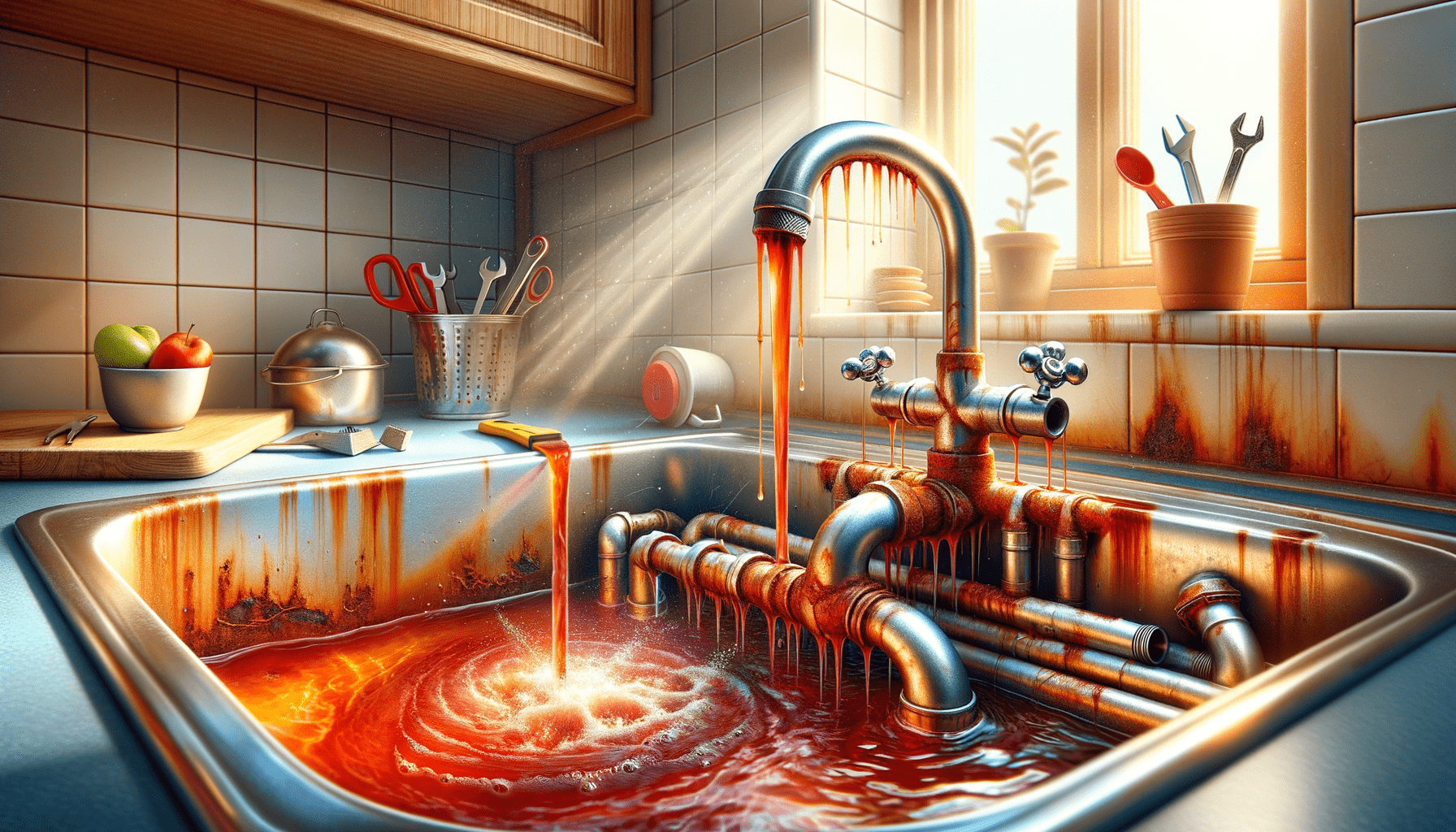There’s nothing like turning on your tap to pour freshly chilled water and being met with an unsettling brown, rusty hue. While this is a common issue, particularly for Brisbane homeowners, understanding the reasons behind it can help you find a resolution quickly and efficiently.
Contents
- Roots of Rusty Water
- Detecting Rust Coloured Water
- Is Rusty Water Dangerous?
- Unveiling Brown Tap Water
- Addressing Rusty Water Problems
- Steps When Water Turns Brown
- Contacting Assistance for Corroded Pipes
- Understanding the Causes of Rusty Water
- Impact Of Rusty Pipes On Water Quality
- Preventing And Fixing Rusty Water
- Conclusion
- Frequently Asked Questions (FAQ)
Roots of Rusty Water
The most likely cause of rusty water in your plumbing system is corrosion in the pipes. Iron pipelines, which were commonly installed in Australian homes during the early 20th century, are particularly susceptible to rust over time. Age significantly factors into this; with more than 20% of the iron pipes exceeding 80 years old in some cities.
The average corrosion rate of cast iron pipes can range from 0.002 to 0.1 mm/year depending on the peripheral conditions such as the water’s pH, oxygen content, etc. Also, “hard” water with higher mineral content accelerates pipe corrosion.
Rusty water may also come from your water heater. If they’re not adequately maintained or have gathered sediment over time, rust can form internally leading to discoloured water.
Detecting Rust Coloured Water
Much like learning a new language, acclimating yourself with key visual cues helps you detect rusty water. Often it reveals itself in a slight brownish discoloration but can darken over time depending on the severity of rust in your plumbing system.
The taste is another telltale sign – water with more than 0.3 milligrams of iron per litre starts tasting noticeably rusty or metallic. Contributing to an unappetising experience that may halt all domestic activities – everything from cooking to showering will be affected.
If your clothes are leaving the washing machine with stubborn orangey-brown stains or your dishes sport similar marks after being washed, it’s safe to assume that rust is plaguing your water supply.
Is Rusty Water Dangerous?
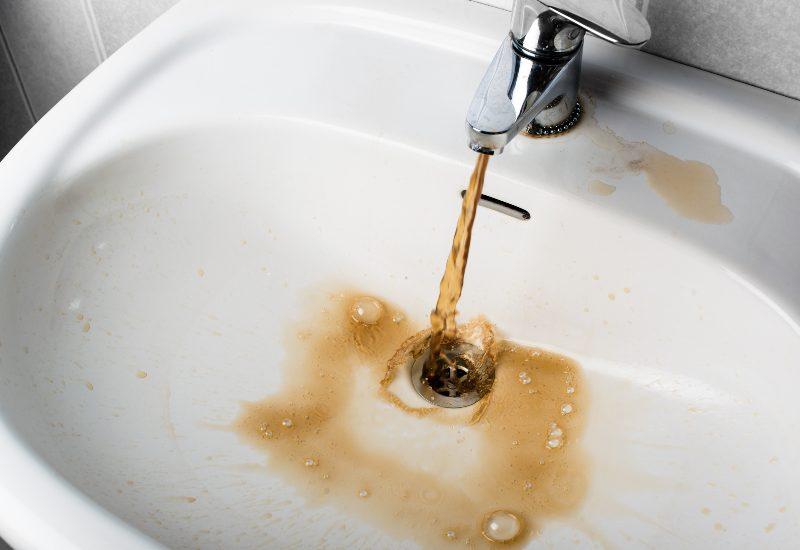
Rust in itself isn’t harmful if ingested. However, consistently consuming large amounts can lead to digestive issues or problems with your skin and hair. Furthermore, severely rusted pipes can sometimes deteriorate to the point where they release other hazardous substances like lead into the water.
Brisbane has periodic reports of discoloured water, with a noticeable count of complaints associated with rusty, lead-contaminated water. The Australian Drinking Water Guidelines set the acceptable maximum level of lead in drinking water at 0.01 milligrams per litre.
Unveiling Brown Tap Water
Brown tap water is commonly a sign of decaying organic material in your plumbing system – often iron or manganese bacteria which feeds off these minerals producing a brown sheen on the surface of the water. Underground construction or repair work can also stir up minerals causing temporary discolouration – this generally affects 5-10% of customers in a given area, leading to temporary rusty water.
In conclusion, your brown tap water may not necessarily be harmful but it does render your plumbing system inefficient and may be an indication of looming costly repairs.
Addressing Rusty Water Problems
The first step to address rusty water problems is investigating its source; which tap it’s showing up at – kitchen sink, showerhead or all outlets? If it’s limited to one tap the problem likely resides in a connecting pipe, if it’s from all outlets especially with hot water first out, chances are you’re dealing with a heater issue.
Flushing the system can provide temporary relief. Especially during construction work near your property or if sediment build-up has resulted in the rusty water. However, if the issue is recurring you may require a more permeant solution.
Steps When Water Turns Brown
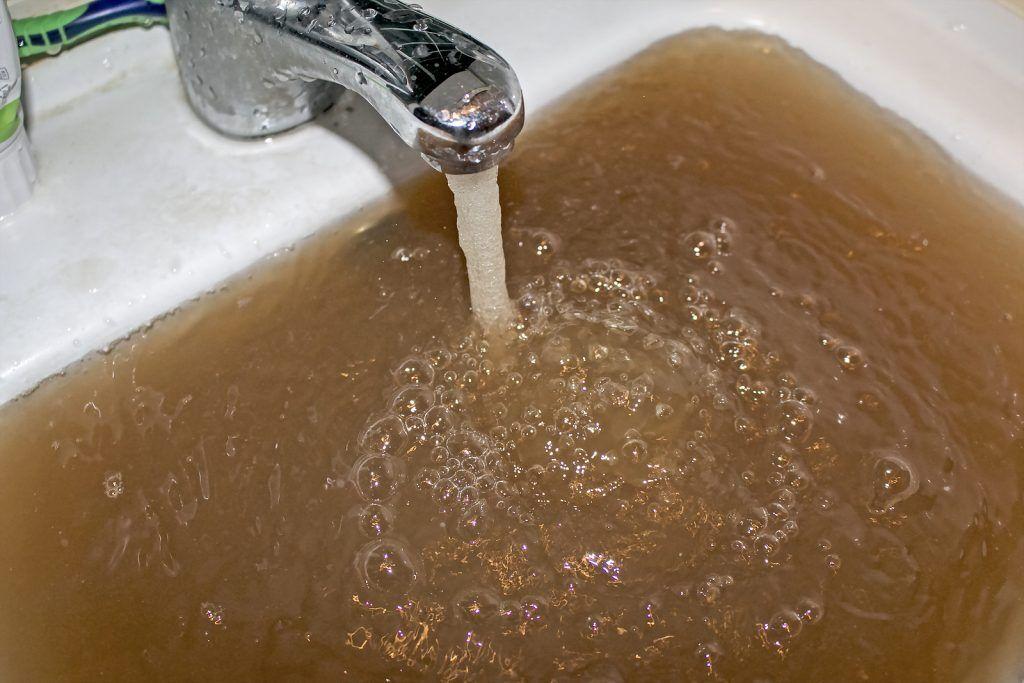
If you find yourself with brown running water, your first course of action should be calling up a licensed plumber.
Meanwhile, the Master Plumbers’ Association of Queensland recommends resorting to bottled water for all culinary activities and using cooled boiled water for brushing teeth until the rust problem is addressed. Remember it is safer to err on the side of caution than face incalculable health risks.
Contacting Assistance for Corroded Pipes
If you’re experiencing rusty tap water in Brisbane, don’t panic – you can avail of our prompt Aussie solutions at Dan’s Plumbing. We recognize the importance of maintaining a clean and secure water supply for your home – it’s essential for your family’s health, day-to-day convenience, and an important investment when considering property values.
We’re here to help correct these disturbances so you get back to your daily routines as swiftly as possible.With a wealth of experience in handling rusty pipe repairs, our team is able to guide you through every step, eliminating any concerns and ensuring clean water flows seamlessly in your home once more.
Understanding the Causes of Rusty Water
Rusty water can be a very troubling issue for households. Nobody wants to turn on the tap to get a glass of water or have a shower, only to be greeted by reddish-brown, rusty-looking water! And according to recent reports from Brisbane residents, this is an issue that’s causing quite a lot of concern. But what actually causes rusty water in the first place?
Essentially, rusty water is caused by corrosion within your home’s pipes. This corrosion can take place over many years, often accelerated by factors such as the hardness of the water in your area and the atmospheric conditions. Home appliances like water heaters can also play a crucial role in causing rusty water, particularly if they are old or poorly maintained.
Water hardness, which varies considerable across Australia, is one significant factor contributing to pipe corrosion. Harder waters tend to accelerate it. For instance, in Brisbane, incidents of discoloured water due to maintenance often associate with rust-coloured water.
Age of pipes is another significant factor. More than 20% of the iron pipes used in some cities are over 80 years old and are at prime age for rusting. Statistics show that the average corrosion rate of cast iron pipes can range from 0.002 to 0.1 mm/year depending on factors like oxygen content and pH level of the water.
Impact Of Rusty Pipes On Water Quality
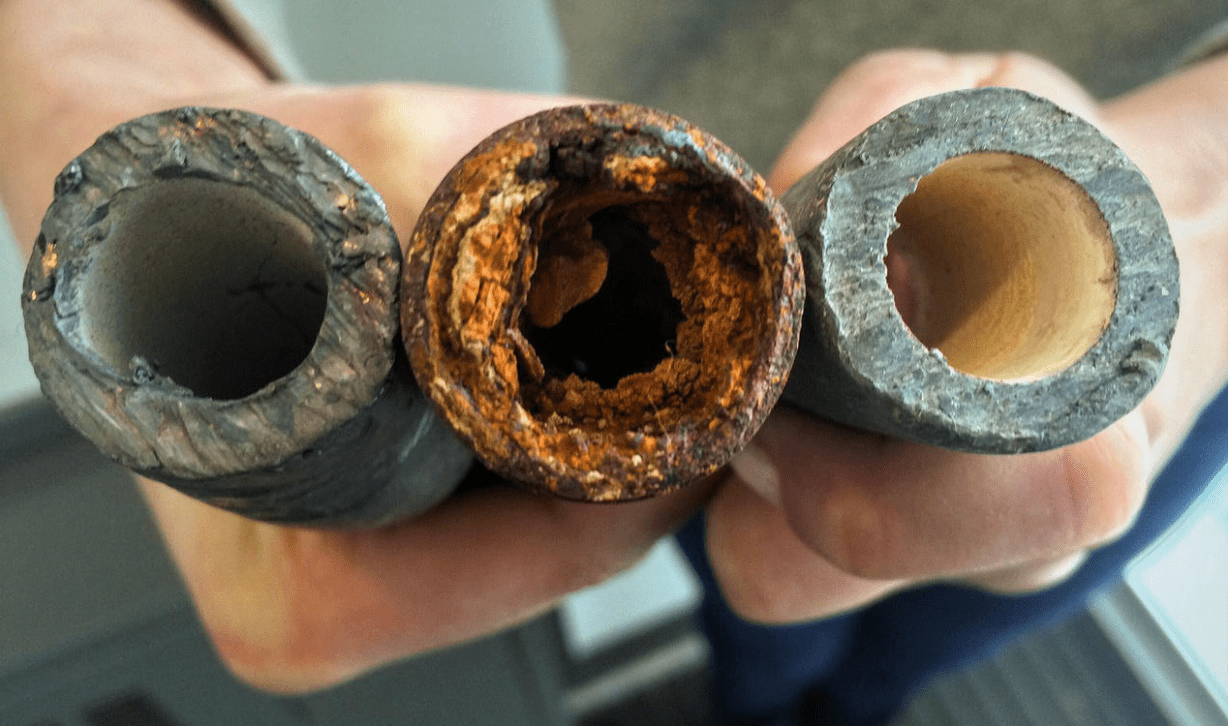
When plumbing begins to rust, it doesn’t just affect the appearance of your tap water — it can also have significant impact on its quality as well. In serious cases, rusty pipes may also lead to lead being released into the water, an issue that no household should ever overlook.
The Australian Drinking Water Guidelines set the maximum level of lead in drinking water at 0.01 milligrams per litre. If your pipes are corroded, this is a limit you could potentially be breaching every time you turn on your tap.
Moreover, even if lead isn’t an issue, the presence of rust particles in your water can still cause problems. Water with an iron content exceeding 0.3 milligrams per litre can start to taste and look rusty or metallic, which makes it unpalatable to drink or use in cooking.
At this point, you might be wondering whether there’s anything you can do to avoid such problems. That’s where we come in.
Preventing And Fixing Rusty Water
Maintaining your home’s plumbing and keeping an eye out for signs of wear and tear can help prevent rusty water issues from escalating. But how do you go about it? Let’s talk about options.
If pipe corrosion is to blame for your rusty water, this often means that it’s due for replacement.
In some cases, localized disruptions in water service affect up to 5-10% of customers in a given area. This leads to temporary rusty water incidents, and indicates a wider issue with the local water supply or infrastructure. In such instances calling a professional plumber or contacting the local water board should be high on your list of priorities.
Other measures include regular maintenance and monitoring of appliances that process water, like heaters and cooling systems.
Conclusion
Remember, while rusty water may not be immediately harmful, it can affect the quality of the water that’s running through your plumbing, potentially leading to further problems down the line. Making sure you are familiar with the iron content in your water, keeping tabs on the condition of your household’s pipes and maintaining your home appliances can be instrumental in ensuring both the longevity of your home’s plumbing and the overall quality of your water supply.
Frequently Asked Questions (FAQ)
1. What causes rusty water?
Rusty water is often the result of corrosion within your home’s pipes, especially seen in older iron pipes. Moreover, your water heater appliances can also play a role in causing rusty water if they are older and not maintained properly.
2. Is rusty water dangerous to health?
Although rust isn’t harmful if ingested, consistently consuming large amounts of rusty water can lead to digestive issues or problems with your skin and hair. Moreover, severely rusted pipes can sometimes deteriorate to a point where they release lead into the water, which is a severe health hazard.
3. Is brown tap water the same as rusty water?
Brown tap water is commonly caused by decaying organic material in the pipes or due to iron or manganese bacteria in the water. This can look similar to rusty water. While it may not be harmful, it can indicate potential issues with your plumbing system.
4. How can I fix the problem of rusty water?
The first step to addressing this issue is to identify the source. This may involve checking different taps in your home to see where the rust is coming from. In many cases, you may need to replace old pipes or water heaters that are causing the issue.
5. Can I prevent rusty water issues?
Regular maintenance and monitoring of appliances that process water can be helpful in preventing problems. For instance, watching for signs of wear and tear and promptly addressing any identified issues can help keep your water clear.
6. When should I seek professional help?
If you cannot determine the source of the rust or if the problem continues after troubleshooting, it could be time to contact a professional plumber or your local water board.
- How Do I Know When It Is Time to Replace a Cracked Porcelain Sink? - November 14, 2024
- What Should I Do If My Water Meter Is Spinning Unexpectedly Fast? - November 14, 2024
- Can a Plumber Help Me Replace a Leaking Garden Tap? - October 14, 2024
Related posts:
 What Causes Hot Water to Run Out So Quickly in My Brisbane Townhouse?
What Causes Hot Water to Run Out So Quickly in My Brisbane Townhouse?
 Can a Plumber Fix My Leaking Pipe?
Can a Plumber Fix My Leaking Pipe?
 Can a Plumber Help Me If My Water Pressure Is Low? Or Might That Be a Council Water Supply Issue?
Can a Plumber Help Me If My Water Pressure Is Low? Or Might That Be a Council Water Supply Issue?
 How Can You Minimise Hot Water System Corrosion?
How Can You Minimise Hot Water System Corrosion?
 How Do Plumbers Locate Hidden Water Leaks in Australian Homes?
How Do Plumbers Locate Hidden Water Leaks in Australian Homes?
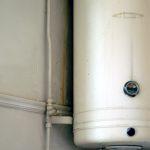 What Should I Do If My Hot Water Service Is Leaking? Is It Time For a Plumber to Replace The Whole System?
What Should I Do If My Hot Water Service Is Leaking? Is It Time For a Plumber to Replace The Whole System?

